Herbs for anxiety and panic attacks

Top 10 herbs for anxiety and panic attacks:
1. Lavender (Lavandula angustifolia)
Lavender is a medicinal herb used for relieving anxiety. Whether using the essential oil or dried plants, lavender is well-known for helping bring about peaceful sleep and relaxed muscles.
Lavender EO is distilled from lavender in a process that is a lot like making brandy or moonshine. Instead of collecting alcohol, the lavender oils are extracted and bottled for medicinal use.
This oil is especially good for stopping panic attacks. Just apply a drop to each wrist and a drop to the back of your neck or temples (do not get it in your eyes). Rest in a dark room and inhale the aroma of the lavender while taking deep breaths.
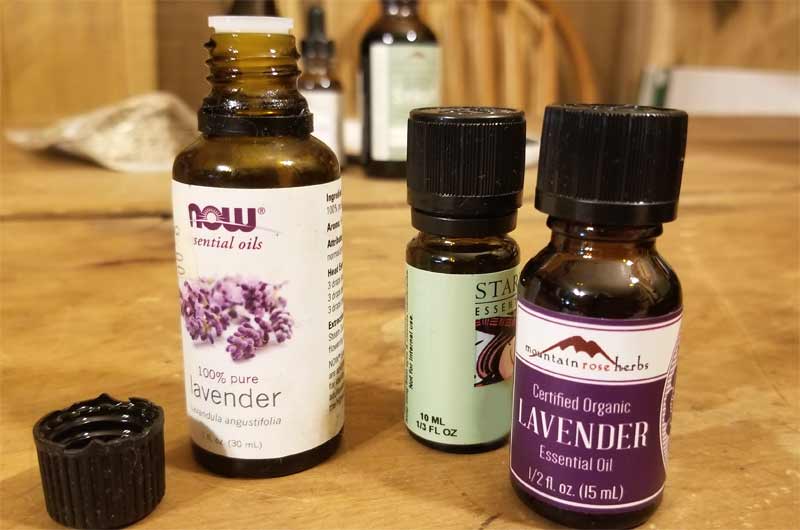
Dried lavender usually contains flowers, leaves, and stems. Lavender makes a wonderful sleep pillow that can bring about peaceful dreams. The flowers are also used in sachets, soaps, and other handmade herbal products.
I do not recommend drinking lavender tea or taking lavender internally in any form. To me the taste is bitter. Instead, keep a bottle of lavender essential oil in your first aid kit or medicine cabinet. You will be using it often for anxiety, headache, bug-bites, sores, scratches, and other common complaints!
Lavender, with its sharp, floral scent, can calm the body, mind, and spirit.
I like to keep lavender essential oil on hand at all times, and would miss this amazing substance if I had to do without it.
Of course what works great for me might not be the best herb for you. You should experiment with various herbs and see how your anxiety symptoms respond.
It might take a few weeks, but when you find the right herb or the perfect blend, you will know it. You should feel calmer and more relaxed in less than thirty minutes.
2. Passion flower vine ( Passiflora caerulea)
Passion flower is a natural remedy for anxiety, insomnia, nervous disorders, and pain. All parts of the plant are used in herbal tea.
Combine passion flower vine with valerian or lemon balm for best results. These herbs contain properties that help bring about relaxation of the body, calmness of the spirit, and a peaceful sleep.
Passion flower is valuable as a medicine and in religious ceremonies. It is believed that use of the herb not only relieves pain and reduces anxiety, but also increases concentration and expands the mind.
Passion flower vine grows wild around here and in many other parts of the USA. We have a few of the vines growing on the south side of the house that we started from seed, but we plan on moving the plants this spring before they take over our porch!
3. Ashwagandha (Withania somnifera)
Ashwagandha is a well known regenerative herb for the treatment of nervous disorders and makes a good tonic to protect the mind against stress and panic attacks. This herb also helps to restore vitality, build immunity, increase brain function, and improve memory. Herbalists often compare it to ginseng.
Ashwagandha root is powdered or ground and added to food to help emancipated children and elderly adults gain weight. This potent herb is even showing promise for the treatment of Parkinson's Disease and arthritis.
Tony and I have never tried ashwagandha but since it pops up so often in my research as a top herb for anxiety and stress, I have added it to my list. If ashwagandha is anything like our native Appalachian ginseng, it is worth a try.
4. Wild lettuce (Lactuca virosa)
Most herbs work great in tea form, but some have healing properties that do not dissolve in water. These herbs are usually made into tinctures which use alcohol as a base. Wild lettuce is a medicinal herb that should be taken in tincture form.
The plant, which is distantly related to opium poppies, has a white sap that contains sedating compounds. Wild lettuce tincture doesn't get you high, but it does relieve anxiety, relieve pain, and help your body to relax.
To take wild lettuce tincture, rinse your mouth with water, then put around ten drops on your tongue. You can also put tincture into water or juice, if desired. Within five to ten minutes, hopefully your anxiety will be a thing of the past.
Wild lettuce is considered a weed by most people. If they only knew!
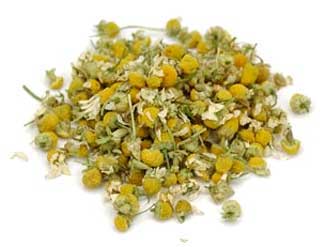
5. Chamomile (Matricaria chamomilla)
Chamomile is healing, and makes a delicious herbal tea. It tastes a little like apples with a hint of floral sweetness and citrus flavor. Chamomile is not overpowering like mint can be. It is subtle, mildly calming, and can be consumed on a daily basis.
Chamomile is a delicate flower that should never be boiled. For tea, steep chamomile flowers in hot water for a few minutes, strain, and sip slowly while inhaling the vapors.
6. Catnip (Nepeta cataria)
Catnip is well-known in the herbal medicine community as an ancient remedy for treating colic in babies. It is also famous as being the drug of choice among cats.
Every time I try to grow it here on the farm, our barn cats wallow it out until none is left. I guess next time I'll have to put up a fence.
Nowadays, catnip is also gaining popularity as a treatment for anxiety in humans. Catnip tea can help calm the nerves, improve digestion, and it tastes good, too.
Like most herbs, catnip is non-addictive and readily available. Like chamomile, catnip is one of the safest herbs and can be used on a daily basis.
7. Lemon balm (Melissa officinalis)
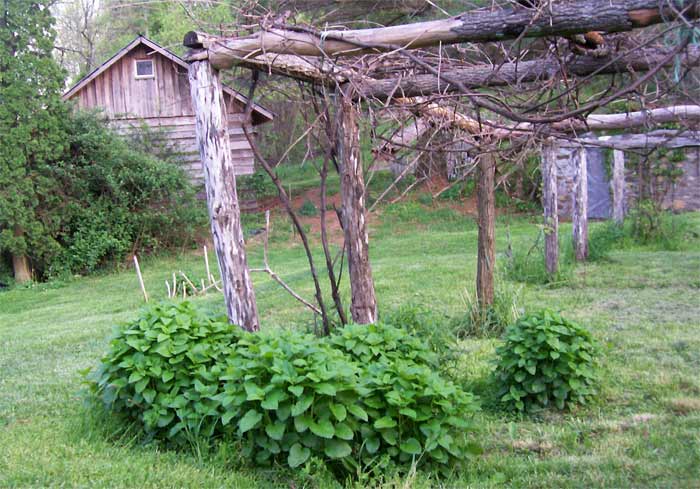
Lemon balm, also known as sweet Melissa, has been used to treat anxiety for thousands of years. Here on the farm, we have been using it for a long time.
As you can see in the photo, lemon balm grows in mounds. Sometimes it gets so tall, Tony has to take a weed-eater to it. When that happens, our yard smells like freshly squeezed lemon for days.
Recent studies support the use of lemon balm for reducing anger, improving brain function, and calming panic attacks. It also tastes good.
Read more about herbs that support brain health.
For added strength when treating restlessness or insomnia, combine lemon balm with valerian and passion flower vine. These three herbs provide quick relief. Results should be felt within a few minutes. Sweet dreams! (Do not use lemon balm if taking thyroid hormones.)
8. Valerian (Valeriana officinalis)
Valerian roots are used in tea and tinctures for the treatment of anxiety, insomnia, and nervous disorders. The plant has an unpleasant aroma that reminds some people of well-worn sneakers or sweaty socks. Some herbalists say it is earthy.
If you are suffering from anxiety, valerian root is worth a try no matter how it smells.
Valerian has been used as a medicinal herb for centuries. Ancient Greeks and Romans used it to treat many conditions including anxiety. Valerian has definitely proved its value through the years.
Valerian root is known for causing drowsiness and should only be taken before going to bed.
For added strength when treating anxiety, combine valerian with lemon balm and passion flower vine. Be ready to sleep like a baby and forget about cooking or operating heavy machinery.
When taking herbs for anxiety, plan on staying put and relaxing in an easy chair if at all possible!
9. St. John's wort (Hypericum perforatum)
St. John's wort is a natural remedy for anxiety and depression. It is very useful in cases of mild to moderate depression but should not be mixed with anti-depressant drugs. Always check with your healthcare professional before taking any herbal remedy!
A well-proven treatment for anxiety, this herb has been used to treat mental disorders for over 2,000 years. Through the centuries, St. John's wort has also proved useful in the treatment of menstrual problems, mood swings, and phobias.
10. Bee balm (Monarda fistulosa or Monarda didyma)
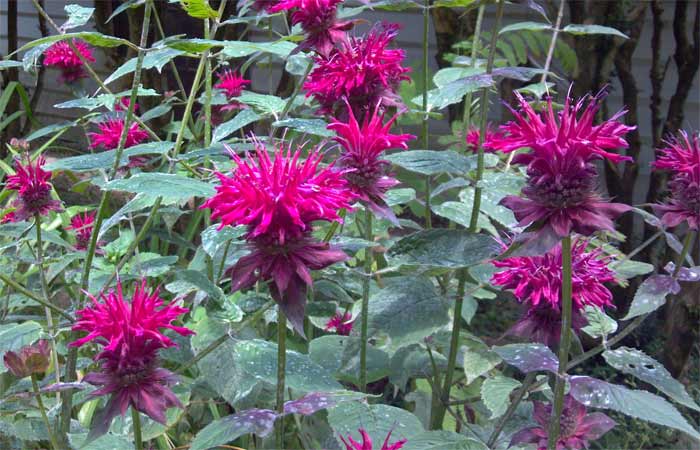
Bee balm is a healing herb that is perfect when anxiety causes upset stomach and digestive issues or nausea. Use the leaves and flower petals in herbal tea for a relaxing brew.
Hopefully, tense muscles will relax, nausea will subside, digestion will improve, and anxiety will disappear. Since bee balm also is a natural decongestant, even your breathing should improve!
Bee balm grows wild and plants are readily available in garden centers. As with all herbs, I recommend that you grow your own if possible.
When bee balm blooms in mid-summer, the flowers put on a show of color. The red blossoms against all the green make a bold impact in the garden. Every year I am amazed at bee balm's beauty.
Bee balm is the medicinal herb I go to on the rare occasions when I can't sleep. The dried leaves of the plant make a tasty, relaxing tea and the flowers really pack a punch. Fragrant, bee balm tea makes all my problems melt away and I am ready for bed in no time!
Anxiety and related symptoms
This post covers herbs and natural remedies for anxiety and panic attacks, but I also have pages devoted to related conditions. Read on to dig deeper into healing your specific problem.
Lowering stress levels with herbs
Fighting anxiety
Anxiety is a big concern in today's society and many might wonder how an herb can help. Whether caused by sickness, loss of a loved one, financial insecurity, or feelings of isolation, people are looking for natural remedies that work. I have found that herbal remedies and life style changes can really do wonders.
Here on Payne Mountain Farms, we have been using herbal remedies to treat ourselves and our animals for over twenty years. Ever since we starting using medicinal herbs and essential oils, we have had more energy, less sickness, and overall improvements in our health.
We eat organic when possible, avoid processed foods, buy high-quality cold-pressed cooking oils, and use herbal teas, tinctures, and tonics on a regular basis. We love the results we get, but when something more serious pops up, we are glad to have good doctors and nurses. We are not opposed to modern medicine!
Tony and I live satisfying lives with few worries, but when problems do arise or some kind of tragedy strikes, we don't let things get out of hand. At the first sign that one of us needs an herbal sedative or relief from a tension headache, we head to the herb pantry.
Why wait? It is always best to treat problems quickly!
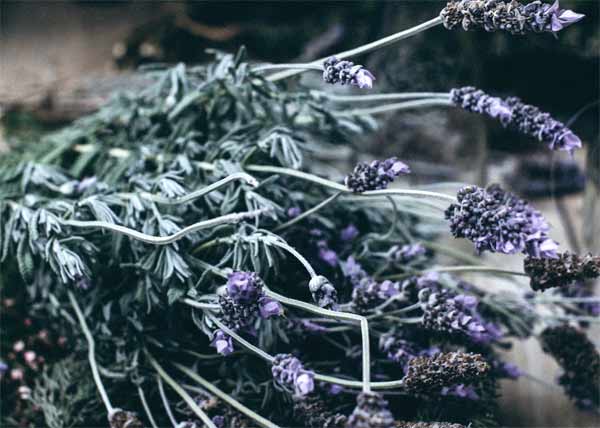
Several medicinal herbs and home remedies are known for treating anxiety and panic attacks. Some work better than others depending on the individual person, symptoms, lifestyle, and underlying conditions.
How do I choose the right herbs?
If you have any symptoms of anxiety, try lavender first since it is the top rated herb for these symptoms. If you have access to bee balm or any of the herbs on my list, try them next since they are available to you.
Note that lavender is rated especially useful for headache pain, as is passion flower vine. Catnip and bee balm are perfect for depression. Since everyone is different, you never know for sure which herbs will give you the best results. Don't give up on finding the right herb or herbal blend!
Ward off anxiety attacks with herbal tea.
Everyone suffering from anxiety should drink different herbal teas everyday. The warmth brings feelings of contentment, the vapors soothe the mind, and the different plants heal and protect the body. It is hard to be anxious when sipping herbal tea.
Are herbs expensive?
You can buy a variety of anxiety reducing herbs for less than twenty bucks! I doubt there is anything made by the big pharmaceutical companies for that price.
Compared to over-the-counter and prescription medicines, herbs are very inexpensive, plus they usually work just as good (without side effects).
Can herbs really help my anxiety?
Herbal remedies are particularly good at treating anxiety and the nerves. If you are looking for natural remedies, anxiety reducing herbs like the ones listed above are going to be your new best friends.
The healing properties of cannabis also deserves a mention. Some people find that cannabis relieves all kinds of nervous conditions, but can also cause anxiety and paranoia in some cases.
CBD oil, an extract of cannabis, is also good for anxiety. It can help you relax, think more positively, and sleep better, especially if you struggle with panic attacks.
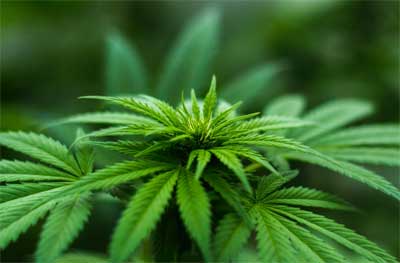
If you want to reduce the effects of anxiety, if you are on a budget, if you crave restful sleep, want to stop panic attacks, and never want to worry about getting addicted or overdosing, try using herbs to treat anxiety. They really can help!
Research supports that herbs can be useful when treating anxiety.
The Mayo Clinic website has an article dedicated to the effectiveness of herbal treatments for anxiety. Scientists and medical professionals agree that certain herbs are very useful when treating stress related conditions. The Mayo Clinic lists many of the same herbs that I do, and also introduce one that is new to me.
Kava is top on their list but I have never tried it myself. They leave out bee balm which is excellent for treating anxiety.
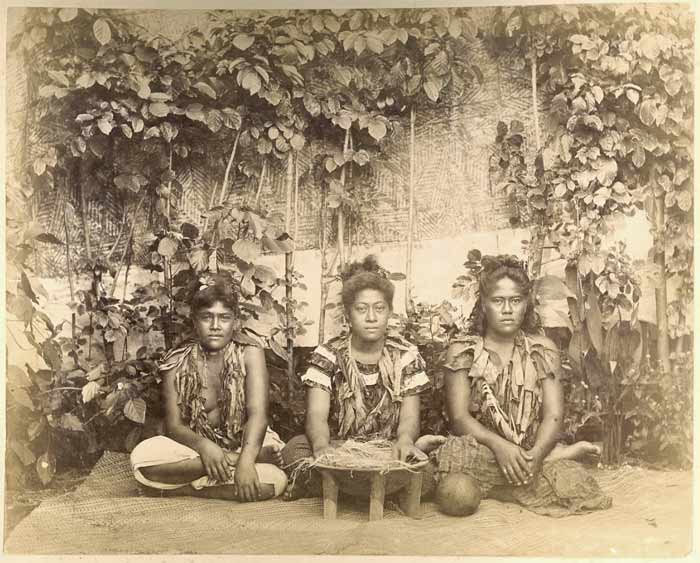
What anxiety symptoms can I treat with herbs?
Treat all of them with herbal remedies!
Symptoms of anxiety include panic attacks, losing interest in daily activities, inability to relax, creases in the forehead, clenched jaws, a racing heart, constipation, diarrhea, weight gain, weight loss, mood swings, crying spells, pacing back and forth, becoming short-tempered, tiredness, frequent bursts of anger, lack of motivation, insomnia, sleeping too much, paranoia, sadness with no obvious cause, chronic headache, neck aches, high blood pressure, lowered immunity, upset stomach, skin disorders, kidney malfunction, frequent infections, asthma, heart disease, mental problems, fear, suicidal thoughts, and nervous breakdown.
There is an herb or herbal blend that can help all of the symptoms of anxiety. Of course, once anxiety has reached the nervous breakdown stage, professional help is needed as soon as possible (especially if there is a possibility of suicide).
As you can see from the list, symptoms of anxiety are wide and varied. Keeping them under control is important. Thank God, herbs and other natural remedies can really help.
You may also want to get to the root of your anxiety instead of trying to treat the symptoms. This might take a bit of soul searching or major lifestyle changes. Yes, it might be hard, but your health is worth it.
Keep a supply of anxiety herbs in case you need them.
Whatever you decide to try, keep some healing teas and tinctures on hand so that you will be ready when symptoms first appear. Sip your tea, think about joyful things, sniff some lavender essential oil, and let your problems float away. It won't be long until your anxiety is under control.
Finding reliable sources for herbs
Make sure to get all of your herbal supplies from reliable sources. It is best to use the freshest herbs possible. Dried herbs that were harvested years ago are worthless for helping anxiety or any other health problem.
You also want all your plant material to be free of pesticides, herbicides, and other toxins. Reliable suppliers can be found locally at heath food stores and farmer's markets.
Herbs and essential oils can also be found online, but be careful of the cheapest products, especially if they are coming from overseas and not certified in the USA.
I sell a few herbs and blends, but my inventory is limited to what I can harvest in the wild or in the meadows here on the farm. While supplies last, we are offering an herbal blend tea that is perfect for treating anxiety and getting a good night's sleep.
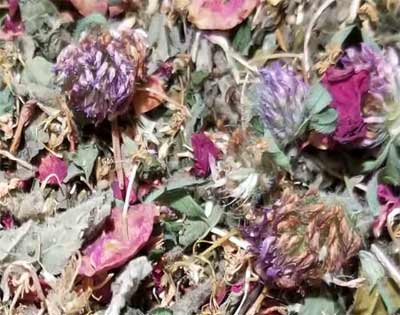
Anxiety affects people differently and so do herbs.
Although everyone is different, lavender, passion flower vine, wild lettuce, ashwagandha, chamomile, lemon balm, catnip, valerian, bee balm, and St. John's wort can help most people to relax and relieve their anxiety.
One person might find that a cup of chamomile tea is sufficient, while another might need a strong blend of several different herbs. Keep trying until you find the combination that works best for your body and personality.
Other herbs for treating anxiety
Many other herbs are also suited for treating anxiety. The choice depends on a variety of things including symptoms, individual preferences, availability, price, and quality.
Kava, skull cap, hawthorn, ginkgo biloba, ginseng, licorice, hops, black cohosh, oat straw, rosemary, barley grass, lobelia, dandelion, parsley, nettles, evening primrose, peppermint, and watercress all have healing properties that help relieve anxiety and its symptoms.
Treating anxiety with herbs is not as complicated as it seems.
After a little practice, choosing the right herb gets easier and easier. Listen to your body! Do you like how something tastes? Take more of it. Does one herb cause indigestion? Maybe try it again with a meal.
Did something cause you to break out in hives or make your lips swell? Then don't use it again. Is something repulsive to your taste buds? Spit it out! Never force yourself to swallow something that makes you want to gag. This is how you listen to your body.
Find out how to treat hives with natural remedies here.
Always buy the highest quality herbs that you can afford.
Always purchase herbs that were harvested and dried within the proceeding year. If all you can find are old products, then choose herbal tinctures and oils. Tinctures and oils can last from three to five years without losing potency if kept in a dark, cool place. It is best to grow your own herbs, but I realize a lot of people don't have that option.

Herbs that treat anxiety operate on three levels.
Herbs that help calm anxiety must work to heal the body, mind, and spirit! Find a blend that slows your heart rate, calms fearful thoughts, and uplifts your mood. If you can do this, you will never have to worry about anxiety again.
What exactly is anxiety?
According to the Oxford Dictionary, anxiety is a feeling of worry, nervousness, or unease, typically about an upcoming event or something with an uncertain outcome. Anxiety can lead to obsessive compulsive behaviors and panic attacks.
Anxiety is normal when a person is in danger. It can keep us survive! When anxiety interferes with daily activities, it becomes an "anxiety disorder".
More tips for treating anxiety with natural herbal remedies
During times of stress, support the mind, body, and spirit with alternative medicine.
Medicinal herbs and alternative medicine can help! For best results, try aromatherapy, deep breathing, meditation, massage, reflexology, music therapy, crystal therapy, homeopathic remedies, acupuncture, and light therapy.
Learn more about healing with aromatherapy.
Everyone is different and what does not work for one person will do wonders for the next person. Don't give up! There is an herbal remedy just for you!
*Always consult with a healthcare professional before taking or giving any herbs or herbal remedies to patients under three years of age, over sixty-five, pregnant, nursing, or taking other medicines. Use caution with essential oils since they are powerful substances. Never use essential oils around (or on) pets unless advised to do so by a professional.
Sources:
https://www.mountsinai.org/health-library/herb/st-johns-wort
https://www.mayoclinic.org/drugs-supplements-st-johns-wort/art-20362212
https://www.uofmhealth.org/health-library/uh1083spec
https://ods.od.nih.gov/factsheets/Valerian-HealthProfessional/
https://www.ncbi.nlm.nih.gov/pmc/articles/PMC3031874/
https://www.mdpi.com/2072-6643/6/11/4805/htm
https://www.ncbi.nlm.nih.gov/pmc/articles/PMC4790408/
Blessings to you and yours!
Thanks so much for reading my blog. Jan.

*Note - the information on this website has not been evaluated by the Food and Drug Administration.
© 2005-2024 website design and content by Janice Boling